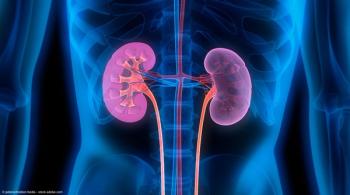
Injuries, deaths from robotic surgery decreasing
Research on a cranberry supplement for decreasing UTI incidence as well as a finding that ketorolac was more effective than narcotics in controlling renal colic were among the AUA 2018 take-homes in quality improvement and patient safety.
Research on a cranberry supplement for decreasing UTI incidence as well as a finding that ketorolac was more effective than narcotics in controlling renal colic were among the AUA 2018 take-homes in quality improvement and patient safety. The take-homes were presented by Robert J. Waterhouse, Jr., MD, MBA, of Carolina Urology Partners, greater Charlotte, NC and Columbia, SC areas.
- Injuries and deaths from robotic surgery are decreasing, and this trend may have resulted from efforts at and improvements in training.
- A survey of 1,058 pharmacies found that the availability of commonly prescribed pediatric medications differed by county, population density, and household income. Low-income areas had fewer 24-hour pharmacies. But access to opioids and compounding was not limited in these areas.
- A program to change the allocation for renal transplant showed that it is possible to reduce racial disparities. Government, advocates, research funders, and physicians must make greater efforts to overcome these disparities.
- In a randomized controlled trial, cranberry supplement decreased the incidence of urinary tract infections, and reduced costs related to laboratory tests and physician visits.
- In a new analysis, the risks from radiation of using computed tomography (CT) to evaluate hematuria in low-risk patients were greater than the benefits of spotting hard-to-find tumors. The study provided support for the use of renal ultrasound instead.
- Ketorolac was more effective than narcotics in controlling renal colic. Such alternatives are getting renewed attention as evidence emerges that urologists overprescribe opioids, a topic the AUA will address in its fall Quality Summit.
- The use of antibiotics has increased for both cystourethroscopy and vasectomy, leading to a call for better stewardship of these drugs. Cefazolin is non-inferior as a first-line prophylactic perioperative antibiotic in endourologic procedures, and may be of particular use in facilities with quinolone and TMP/sulfamethoxazole resistance. Infection is a common complication of retrograde intrarenal surgery, but preoperative antibiotic prophylaxis didn't benefit a series of patients with preoperative sterile urine and stones <200 mm3.
- When residents are properly supervised, there is no "July effect" on patient outcomes.
- Centers that evaluate their transfusion thresholds and seek to decrease transfusions can perform most urologic procedures.
Newsletter
Stay current with the latest urology news and practice-changing insights — sign up now for the essential updates every urologist needs.






